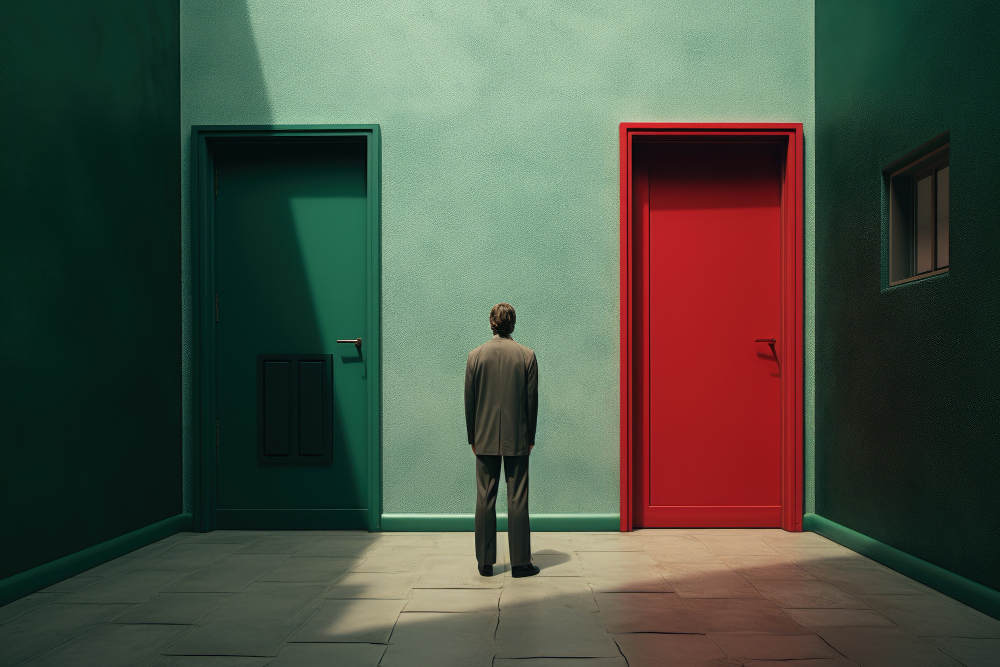You know that feeling when you walk out of a loud restaurant, concert, or construction zone and your ears are still buzzing? Maybe there’s a persistent ringing that makes you wonder if your phone is vibrating somewhere in the distance. We’ve all been there – but when does that post-noise buzz cross the line from “my ears need a break” to something worth paying attention to?
If you’ve been asking yourself whether those sounds in your head are just the aftermath of modern life’s volume or something more persistent, you’re definitely not alone. Almost everyone has had tinnitus for a short time after being exposed to extremely loud noise, but knowing when it’s time to take notice can feel like trying to solve a puzzle with missing pieces.
Let’s dive into the three key signs that can help you figure out what’s really going on up there.
The Sound That Follows You Home
You’ve just spent the evening at your friend’s housewarming party where the music was cranked up way too high, or maybe you were stuck in traffic next to that motorcycle that sounded like it was auditioning for a NASCAR race. Hours later, you’re lying in bed, and there’s still this faint ringing or buzzing that seems to have taken up permanent residence in your ears.
Here’s where it gets interesting. Sometimes exposure to impulse or continuous loud noise causes a temporary hearing loss that disappears 16 to 48 hours later. So that lingering sound might just be your ears’ way of saying “hey, that was a lot” and needing some recovery time.
But here’s the first sign to watch for: timing and persistence. If you’re dealing with sounds that stick around for days after your noise exposure, or if they seem to pop up even during your quiet moments at home, that’s worth noting. Temporary noise-related effects usually fade as your ears recover from whatever loud environment they endured.
The tricky part? The phantom sound may ring, buzz, roar, whistle, hum, click, hiss, or squeal, and it can show up in one ear, both ears, or feel like it’s coming from inside your head. It’s like your ears have developed their own soundtrack, and unfortunately, you didn’t get to choose the playlist.
When Silence Becomes the Loudest Room
Here’s something that might sound counterintuitive: the second sign to pay attention to is how these sounds behave when things get quiet. You know those moments when you’re winding down for the night, reading a book, or just enjoying some peaceful time? If that’s when the ringing, buzzing, or humming becomes most noticeable, it might be telling you something important.
Think about it this way – if you’ve just left a noisy environment, you’d expect any lingering effects to be most apparent right after the exposure, when your ears are still recovering. But if you find that the sounds become more prominent during your quiet, calm moments, especially when you’re trying to relax or focus, that’s a different pattern altogether.
This isn’t about the immediate aftermath of being somewhere loud. Instead, it’s about sounds that seem to have their own schedule, showing up during your downtime regardless of what your day looked like. Some people describe it as their ears “filling in the blanks” when there’s less environmental noise to mask whatever’s going on internally.
The key difference here is predictability. Noise-related temporary effects usually follow a pattern – they’re stronger right after exposure and gradually fade. But if you’re noticing sounds that seem to have their own rhythm, appearing during quiet moments even on days when you haven’t been anywhere particularly loud, that’s worth keeping track of.
The Daily Life Reality Check
The third sign is probably the most telling: how these sounds fit into your everyday routine. This is less about the specific noise you’re hearing and more about whether it’s starting to tag along to places where it doesn’t belong.
Are you finding yourself turning up the TV a bit more than usual? Maybe you’re asking people to repeat themselves more often, or you notice you’re having trouble following conversations in busy restaurants or crowded spaces? Sometimes these changes happen so gradually that we don’t even realize we’re adapting our behavior around them.
Short term exposure to loud noise can also cause a temporary change in hearing (your ears may feel stuffed up) or a ringing in your ears, and while these effects may resolve on their own, it’s the patterns that matter. If you’re consistently dealing with sounds that seem to interfere with your daily activities – whether that’s focusing at work, enjoying quiet moments, or simply hearing conversations clearly – that’s information worth having.
Here’s what’s particularly important to consider: A person’s NIHL symptoms can go away after leaving the noisy environment, but if you’re noticing persistent changes in how you experience sound even when you’re in familiar, comfortable spaces, that suggests something beyond just recovery from a loud day.
The Modern World’s Volume Problem
Let’s be honest – we live in a pretty noisy world. Between traffic, construction, restaurants that seem to think louder equals more fun, and yes, even our beloved concerts and events, our ears are constantly being asked to process a lot of information. Many people experience tinnitus after being exposed to loud noise in a workplace setting or at a sporting event or concert.
This means that temporary noise-related effects are incredibly common. Your ears are remarkably good at handling occasional loud environments, but they also need time to recover. The challenge is distinguishing between “my ears need a break” and something that might benefit from a different kind of attention.
What makes this even more complex is that everyone’s experience is different. Some people bounce back quickly from loud environments, while others might need more recovery time. Some notice temporary effects primarily as a feeling of fullness or muffled hearing, while others experience various types of sounds.
Making Sense of Your Own Experience
So how do you put all this together? Start by becoming your own sound detective. Pay attention to patterns:
- When do you notice these sounds most?
- Do they seem connected to specific loud environments or activities?
- How long do they typically last after noise exposure?
- Are they showing up during quiet times when you haven’t been anywhere particularly loud?
- Are you making any unconscious adjustments to how you navigate daily activities?
The goal isn’t to diagnose yourself or figure out exactly what’s causing what. Instead, it’s about building awareness of your own patterns so you can make informed decisions about when and how to seek guidance.
Remember, some people experience a spontaneous improvement in their tinnitus, especially if it was caused by a temporary condition like exposure to loud noise. This means that many noise-related effects do resolve on their own given time and proper ear care.
Taking Care of Your Ears in a Loud World
Whether you’re dealing with temporary effects from loud environments or something more persistent, there are some practical steps that just make sense for anyone who wants to maintain good ear health in our noisy world.
Give your ears regular breaks from loud environments when possible. If you’re going to a concert, sporting event, or anywhere you know will be loud, consider bringing ear protection. It doesn’t have to be the bulky kind – there are plenty of discrete options that reduce volume without completely blocking sound.
Pay attention to your daily volume habits too. Those earbuds we’re all constantly wearing? They can contribute to noise exposure, especially if you’re cranking up the volume to compete with background noise. Try the 60/60 rule as a starting point – no more than 60% volume for no more than 60 minutes at a time.
Create quiet spaces in your routine. This isn’t just good for your ears; it’s good for your overall well-being. Whether that’s a few minutes of silence in the morning, a quiet walk, or just turning off background noise while you work, giving your auditory system some downtime is always a smart move.
The Bottom Line
Here’s what it comes down to: you know your body better than anyone else. If you’re noticing patterns that concern you, or if changes in your hearing are affecting your daily life, that’s valuable information. You don’t need to wait for symptoms to become severe or disruptive before seeking guidance from a healthcare professional.
The three signs we’ve discussed – timing and persistence, behavior during quiet moments, and impact on daily activities – aren’t meant to replace professional evaluation. Instead, they’re tools to help you become more aware of your own experience and make informed decisions about your health.
Living in a loud world doesn’t mean we have to accept that our ears will inevitably suffer for it. By paying attention to what our bodies are telling us and taking proactive steps to protect our hearing, we can continue to enjoy all the sounds we love while being mindful of the ones that might not be serving us well.
Whether that ringing is just your ears recovering from yesterday’s adventures or something worth exploring further, you now have a better framework for understanding what you’re experiencing. Trust your instincts, be kind to your ears, and remember that seeking guidance is always a sign of taking good care of yourself, not something to put off until problems become overwhelming.

Important Disclaimer: This article is for informational and educational purposes only and is not intended as medical advice, diagnosis, or treatment. The information provided should not be used as a substitute for professional medical consultation, diagnosis, or treatment. Always seek the advice of qualified healthcare providers with any questions you may have regarding hearing concerns or any medical condition. Never disregard professional medical advice or delay in seeking it because of something you have read in this article. If you think you may have a medical emergency, call your doctor or emergency services immediately.
Sources:
- National Institute on Deafness and Other Communication Disorders (NIDCD)
- Mayo Clinic Health Information
- Harvard Health Publishing
- Cleveland Clinic
- Occupational Safety and Health Administration (OSHA)



